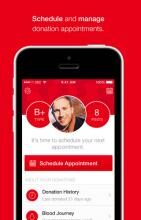Addiction can be a tough subject. It affects thousands of people and their loved ones every day. There are many kinds of things that people can become addicted to. Substance and behavioral addictions, are some of the most common reasons why people seek treatment. There are many highly qualified professionals who focus on identifying the reasons behind the addiction and actively engage with their subjects to start treatment programs to cure or resolve these issues. Addiction is something their patients deal with every day. It disrupts their lives and the lives of their family members and friends. There are a lot of online resources you can turn to if you or someone you know is battling with addiction. You can find out more at How To Stop Smoking Weed: Step By Step Guide [Updated For 2018] and other sources. You can also read about treatment centers and success stories about people who have successfully overcome their addictions. Here are four common misconceptions about addiction:
1. Addiction is a choice, not a disease
This is probably the biggest misconception that many people have about addiction. A person’s initial choice to use or misuse a particular addictive substance is usually voluntary, but the way their brain reacts to that substance is not. The American Society of Addictive Medicine defines addiction as “a primary, chronic disease of brain reward, motivation, memory and related circuitry.” Some common symptoms include lower levels of behavioral control, improper or irrational emotional responses and being unable to go without the particular addictive substance of choice.
2. Addicts can quit whenever they want to
While some people may be able to quit their addictions or addictive behavior cold turkey, in reality, this is the rare exception instead of the rule. Often times, there can be great physical and psychological damage that is done. The person dealing with addiction issues needs to learn how their actions affect not only them, but also their family members, friends, coworkers and other important people in their lives. They need to develop coping mechanisms to reduce or eliminate the reasons why they turned to their addictions in the first place.
3. Addiction doesn’t happen to successful people
There are thousands of people dealing with addiction issues every day from all walks of life. It doesn’t matter how much money you have or how well you are doing in life. Addiction can affect anyone, for any reason. Some people may appear to live the perfect life, but are really suffering on the inside. Others are visibly struggling with their addiction issues.
4. Addicts only need treatment once they’ve hit rock bottom
What is “rock bottom?” The answer to that question is different for every person dealing with addiction issues or substances. For some, it might be a slip in job performance. For others, it might be the end of a relationship or loss of a job. Certain people decide to seek help when they first exhibit signs of abnormal behaviors. Still others wait until their loved ones have abandoned them and they are living alone or on the streets. There are some who scoff at the idea of treatment altogether. They deny that they even have a problem. Whatever the situation or the reason, it’s never too late or too early to seek professional help. These are just some of the misconceptions that exist regarding addiction. It can be a touchy subject, but it may sometimes be a necessary subject of conversation. The person dealing with addictive issues should not be scorned or shunned. They probably feel very bad or guilty about how their situation has affected others in their life. They want things to be better, but may not know how to take the first step. Enrolling in counseling or enlisting the aid of a professional can help them get on the road to recovery.










